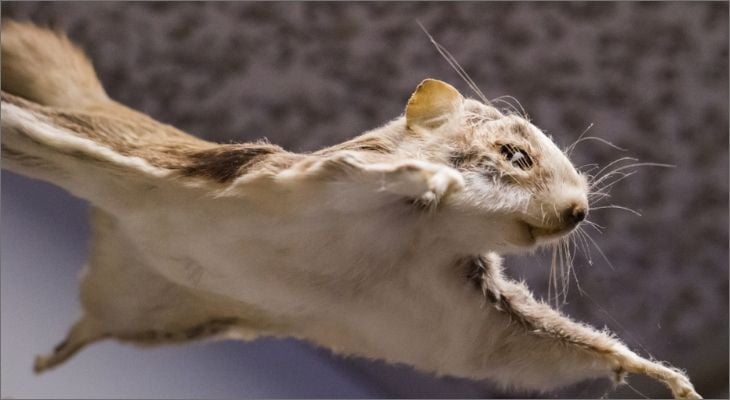
Much like sugar gliders, flying squirrels make affectionate pets when purchased young and raised by their owner. Unlike sugar gliders, however, flying squirrels are rodents that need veterinary care specific to the species. Your veterinary team can help with the care and treatment of flying squirrels.
Health
Flying squirrels like to leap, climb, and fly. This means they need tall enclosures that feature ropes, branches, and more to keep them emotionally happy and physically fit. You may want to invest in at least two flying squirrels because they're social animals who may become lonely and depressed when isolated.
Your veterinarian can help keep your flying squirrels healthy through regular check-ups, and you can help keep them happy by providing a suitable habitat inside your home. These pets are susceptible to calcium deficiency, so a calcium block will be needed in your enclosure.
Care
Flying squirrels are famous for bonding with their owners, and they'll happily spend hours in your pocket if you show them love and attention. Don't let them get lonely, and provide plenty of stimulation and a proper diet to keep them at their best.
Enclosures should measure at least 4- to 6-feet tall to allow plenty of room for flying squirrels to get the exercise and stimulation they need. They'll need lots of daily time with you, too, being cuddled and loved. Ensure your squirrels have access to cozy pouches inside their enclosures because these are their beds of choice.
Feeding
Flying squirrels in captivity eat a range of foods, including:
- Birdseed
- Mealworms
- Waxworms
- Nuts
- Acorns
- Sunflower seeds
Fresh vegetables and commercial hamster food will also keep your pet rodent happy and fit. Our veterinary team is happy to speak with you regarding the proper diet for flying squirrels.
Training
Squirrels are smart little creatures and can be trained to eat from your hand, come when you call them, and more. The most effective way to train a flying squirrel to perform simple tasks is to bond with them early on and spend lots of time rewarding them for good behavior. If you adopt your flying squirrel when he's young and raise him with love, there are few limits to what you can accomplish together. Your veterinarian can help you learn the ins and out of how to be the best owner of your flying squirrels.
